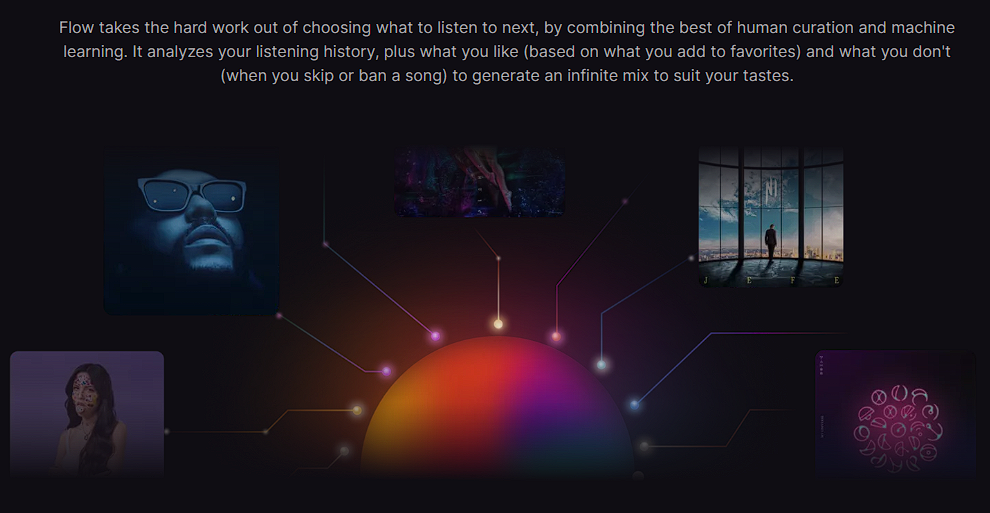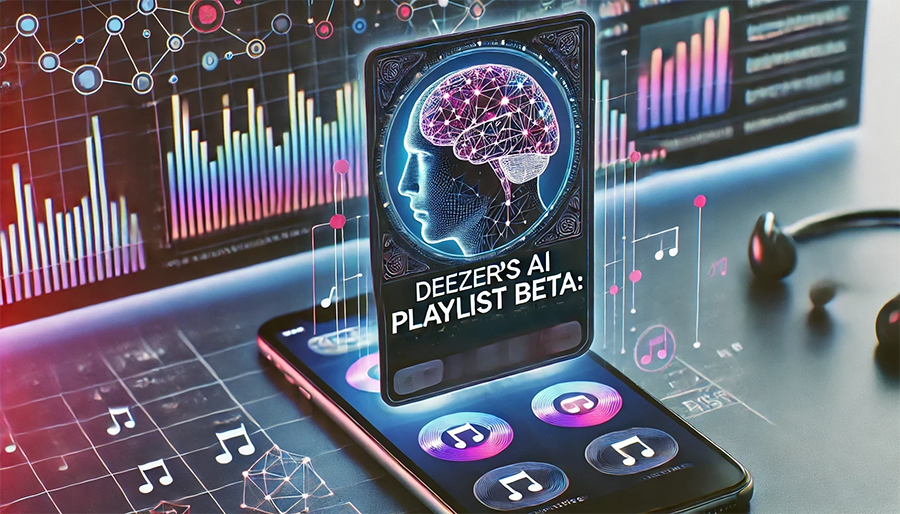Deezer has unveiled its latest innovation, a generative AI playlist feature, sparking debates about the future of human music curators.
Overview
Deezer, a prominent music streaming service, is testing a new AI-driven playlist feature with 5% of its paying subscribers, chosen randomly.
This feature allows users to generate playlists based on text prompts, which can specify moods, genres, decades, or activities.
The initiative aims to enhance user experience by offering personalized music selections quickly and efficiently.
The AI Playlist Feature
Deezer’s new feature, named “Playlist with AI,” is currently in its beta phase.
It enables users to create playlists by typing prompts such as “workout music,” “romantic evening,” or “80s nostalgia.”
The AI then curates a playlist that matches the specified criteria.
Alexandra Leloup, VP of Product at Deezer, expressed excitement about the feature, stating, “Whether you need the perfect soundtrack for a workout, a romantic evening, or a nostalgic trip down memory lane, our Playlist with AI feature will curate a new musical experience within a matter of seconds, and offers endless possibilities to easily discover new music”.
Enhancing User Experience with AI

Deezer has been integrating AI into its platform for some time.
The “Flow” feature, for example, creates playlists based on users’ listening history and preferences, while “SongCatcher” helps identify and register unknown songs.
The new AI playlist feature builds on these technologies, aiming to provide even more personalized and intuitive music recommendations.
The Human Touch vs. AI
Despite the excitement around AI-driven playlists, there is a concern that these innovations might overshadow the unique value of human curation.
Music recommendations from friends or partners often carry emotional significance, creating lasting memories and connections.
An AI-generated playlist, while efficient, may lack this personal touch.
As one critic noted, “Creating an AI playlist with the prompt ‘a mix tape for when I’m sad featuring only 80s music’ just doesn’t hit the same way”.
Industry Implications
The introduction of AI-driven playlists by Deezer follows similar moves by competitors like Spotify and Amazon Music, indicating a broader industry trend.
These features could help emerging artists gain exposure by including lesser-known tracks that fit users’ specified criteria.
However, there are concerns about potential biases in the algorithms, such as music labels paying to increase the visibility of their artists’ tracks, reminiscent of the “Payola” scandal.
Why This Matters
For music producers, the rise of AI in music curation presents both opportunities and challenges.
AI-driven playlists can help new artists reach wider audiences, potentially increasing exposure and revenue.
However, the dominance of AI could marginalize human curators, who bring a unique and personal touch to music discovery.
As AI becomes a standard feature in music streaming, producers must navigate this evolving landscape to ensure their work continues to resonate with listeners on a personal level.
Deezer’s AI playlist feature exemplifies this shift, offering innovative ways to discover music while sparking important conversations about the balance between technology and human touch in curation.
For more information, visit the impact of automation and AI on the music industry and the AI industry’s impact on music leaders.



